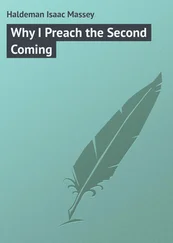Her head was shaped like an egg we all wanted to cradle. Sometimes she’d send a boy with marinated chicken and rice and syrupy peach halves to the singles quarters. Other times, potatoes and creamed corn from a can. But this was only charity. Her love for Festus unnerved us. Her face hid nothing. It was there in those teeth, in her nose, in the delicate porches of her ears. She looked at him a hundred different ways, but the one I remember most was curiosity, as if one of the reasons she loved him was that she was unsure of what he’d do next. No one at Goas was more predictable than Festus. He was the farm’s most unsecret agent. He was so reliably duplicitous, he circled back around to trustworthy. Festus was a man who cahootsed with both sides of the Goas power balance. When the principal wanted something, Festus hopped to it, believing one day he’d become assistant principal, should the principal ever deign to appoint one. Same went for the priest, though the reward might have been more intangible. (Then again, maybe not. It was said that the Father was a hoarder of both money and frozen steaks.) Above all, what Festus cherished were his hushed conferences in either the rectory or the principal’s office, his proximity to power.
But the question was: Why couldn’t he just be content to make love to Dikeledi? What makes an already rich man need more? Everybody was waiting for her to get pregnant, as this would, we thought, take the sting out of her being so close and yet always behind that window. Obadiah wrote it in a poem. May we rejoice in the sadness /of your milkplump breasts.
It was rumored Pohamba had a wife, an actual wife, and that she lived in Otavi, and that some nights he would lock himself in his classroom and bang out letters to her on the school’s ancient Olivetti.
Festus and I would knock on the classroom door. We’d call out to him that we were going hunting, one of Pohamba’s favorite leisures. We hunted for the spoor of the elusive dwarfed hedgehog ( Potamochoerus porcus ) of the central Namib escarpment. Hunting entailed borrowing a couple of Auntie Wilhelmina’s whelps and marching around the veld with umbrellas. Pohamba said this is how real men hunted. So when he was holed up in there, we’d slip him notes under the door with bloody drawings of bludgeoned hedgehogs.
But when he was typing he never answered the door. We’d stand outside and listen to the rattle of the typewriter. Festus said that the wife had run away with a Boer. When the Boer tired of her she went back to Pohamba, but he wouldn’t take her, and neither would any of her people, so she had to go live in a cave up in the mountains of Damaraland. Festus said Pohamba sometimes took pity on her and every once in a while sent her a letter, which was delivered to her by a man on a donkey.
Obadiah said nonsense. He said Pohamba was just in love and that he wasn’t writing to his wife but to a floozy in Windhoek. He said the girl’s father was a SWAPO bigwig in the Justice Ministry and had forbidden her to marry a failed math teacher with a big strutting stride. That Pohamba had once tried to meet Bigwig at his office in the capital, but Bigwig’s secretary said he had to make an appointment two months in advance. After that Pohamba smashed his fist on the glass reception table and started shouting that this was his independence too, and that if he wanted to see a government employee in his own country — the one he fought for, the one the blood of his comrades gave birth to — then he wasn’t waiting two minutes, forget two months. So they threw him out, and almost arrested him, Obadiah said.
All I really know — and this is only conjecture, because Pohamba never said one way or the other — is that the typing, whomever he was typing to, was one of the few things he refused to make a farce out of. I think he was writing to someone, but that someone was either dead or so far gone from him it amounted to the same thing.
When Pohamba wasn’t around, we used to hunt his stuff for the pages, but we never found anything. He might have burned them. Or maybe he saved on paper by not using any, banging away at a dead ribbon.
One night I outlasted Festus and read as I listened to him type. I sat against Pohamba’s classroom door. In the early evenings, boys would climb the hill and do pull-ups on the cross. Every night, there were these silhouettes rising and falling in the half-light. Rubrecht Kanhala was up there then. I knew it was him because he was the best. His long body flinging itself up and over the horizontal bar of the cross. Rubrecht did what looked like fifty or so pull-ups, and the boys were chanting his name, begging for more. I gave up reading when there was no light left, but Pohamba plowed on, without a candle, the typewriter ringing as he reached the end of line after line.
Rain, those few times it came without thunder. You could feel something bloated about the air when you breathed, and you knew. You also knew it would disappear as quickly as it arrived, that by tomorrow the dark stain in the sand would be as gone as the silence of the rain itself. I’d learned at least this, that the rain carried its own engulfing silence, and that it, too, would leave us. As if none of it ever happened. Then the Erongos would emerge from the clouds and loom again, and the relentless sun would pierce our thin walls, and we would curse the rain for bothering us in the first place.
It had been a glorious downpour, but it had gone on for nearly three hours. It was no longer a miracle, and however fleeting and teasing, it always started as a miracle. Now it was just rain again. We were waiting for after rain, when the sun would rise, battered, like a wet loaf. When Antoinette’s chickens would shake out their dirty feathers and saunter again. When the younger boys would start whittling sticks to spear the fantasy fish the older boys lied to them about: Don’t you know? They swim down from Ovamboland when the heavy rains come . Those boys — lying on their stomachs, watching the amazing river of actual water, looking for barbel or pink-bellied scroot. But the only thing the momentarily flowing Kuiseb carried along was a few drowned mice.
The earth slogged. The water curdled in our footprints in the sand. All was mud now. We’d all retreated to our rooms when Pohamba knocked on the wall. “Mother Goas has birthed another lunatic!” Then he came to my door and ordered: “Come and see.” Wet feet, towels over our heads, we went out to the edge of the soccer field. And there was Dikeledi at mid-field, whirling. The rain was still falling in gray veils. Festus was out there too, on his back, playing his fatty chest like bongos. She was wearing his stupid straw hat and laughing, her arms stretched out, her wet breasts swinging as if they were trying to reach out to her hands. Rain-worn, we craved her more. Pohamba kicked his door shut and yowled about his fucking toe. I rammed my door also. For once our envy of Festus spoke with one voice. It was too much. We shut up our windows and listened to the silence of our rooms, of our beds, as the dread rain pounded, pounded our corrugated roofs.
My love’s been out rescuing the laundry from the rain. Sad that we must save our clothes from what’s so welcome. She flings a heap on the kitchen table and begins draping our sheets, our pillowcases. Over the table, over the stove, the counters, chairs. From the light fixtures, from the doors. She hangs an undershirt off the back of my own head. Our life as shrouds. When she’s done, she crosses the worn linoleum in her wet feet, slapping prints with detached toes. Where’d your toes go, my Toinette? She fills the kettle with a bit of water to rinse it, not too much, dumps it in the basin, fills it again. The drum of the water draining into the kettle joins the rain. How easy, how simple it is to merely fall. As if it never forgot. As if it always fell like this. She rips a match. The suck of the gas of the Primus. The flames reaching out from under the kettle like desperate blue tongues. Soon the kettle will scream as if it’s screaming only for her. Then her pruned hands will hold a mug. My wife or my mother? Am I remembering this or seeing it? What house of my life doesn’t have wires for laundry behind it? What kitchen of my life doesn’t house a woman making tea? Your drenched body, its outlines. If I could pull you close. Three hours of hard rain at Goas? Did gorging ever make a man starve slower?
Читать дальше












